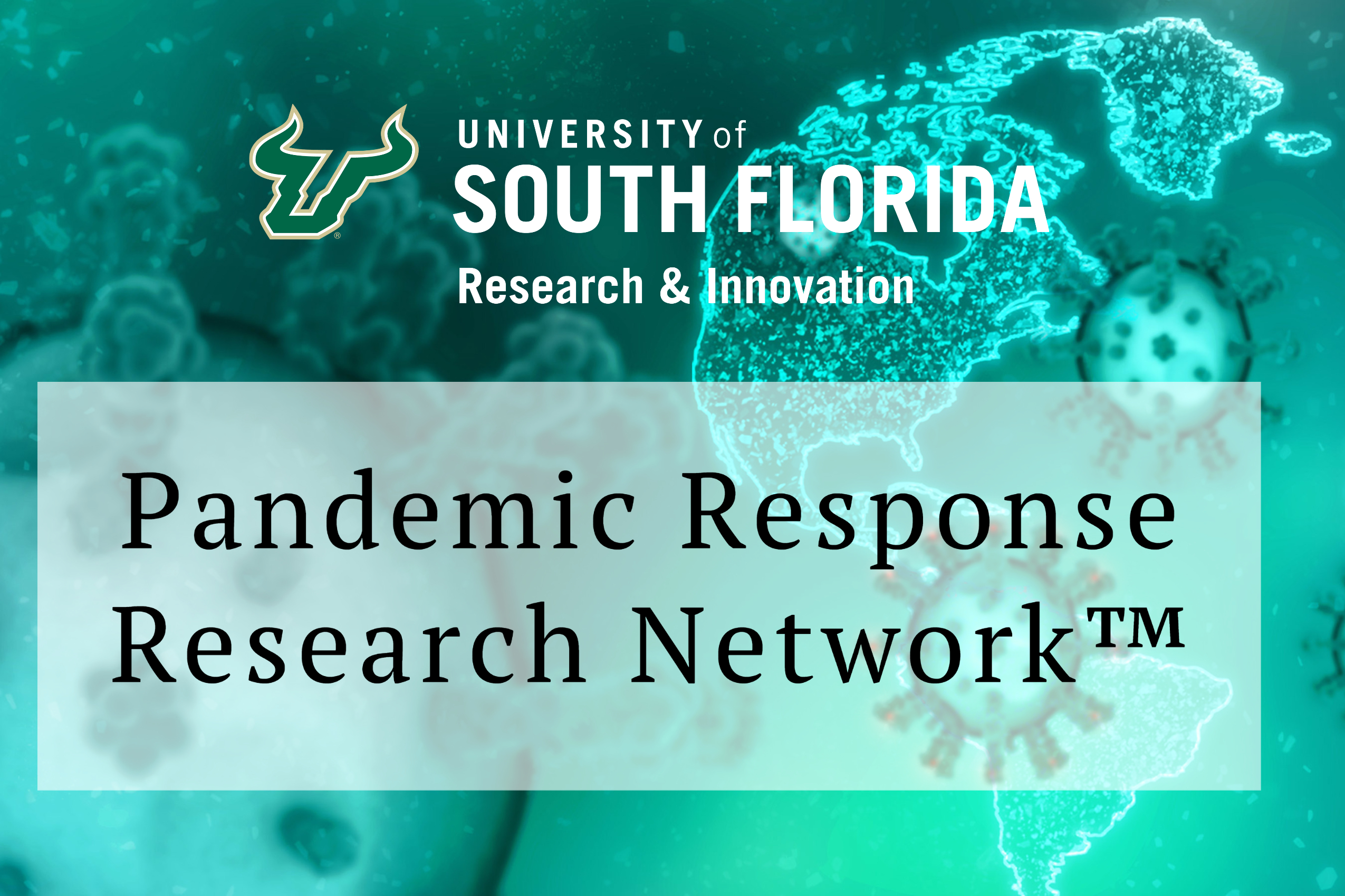USF launches research task force to contribute to COVID-19 efforts

USF has enlisted itself in the fight against COVID-19 with the creation of the Pandemic Research Response Network (PRRN).
The PRRN was created by the USF COVID-19 Task Force, which was convened by USF President Steven Currall. The group has been conducting research associated with the global pandemic.
After discussing how USF could make a contribution to COVID-19 efforts, the task force launched the PRRN.
Senior Vice President for Research, Innovation and Knowledge Enterprise Dr. Paul Sanberg chairs the task force. Sanberg has a background in neuroscience and biomedical engineering.
“This was an idea from President Currall — he asked me to lead a task force to look at what we could do in research to make an impact and help,” said Sanberg. “A bunch of us brought some of our best researchers together and we decided we would do this Pandemic Response Research Network.”
Faculty and staff from various departments across the university make up the task force’s membership, from USF Health to the Muma College of Business.
“We have faculty and some research administrators from almost every college, many departments and across all three of our campuses,” said Sanberg. “We came up with a list of people we thought would be diverse enough, knowledgeable enough and [who we could ask] at the last minute to help out.”
Many of the members on the task force have also assumed leadership positions in the PRRN leading different “hubs.” These hubs specialize in different facets of society that the task force believes will be affected by COVID-19.
The PRRN has currently established six of these hubs — some are focused on tackling health-related research involving COVID-19, and others are established in specialties that are more distant from the health care industry.
“We developed a bunch of different areas that we felt were critical to do research in,” said Sanberg.
Each hub will conduct research in a designated area, with the health-focused ones dipping into behavioral health, therapeutic, clinical and epidemiology research.
The others are investigating the relationship between pandemics and the environment as well as pandemics and information technology.
“There are so many aspects of society that have changed because of what we’re going through now, ” said Sanberg.
Two more hubs are also in the process of development — a “Manufacturing, Innovation and Entrepreneurship” hub and a “Fundraising and Partnerships” hub.
Through the research done in these hubs, the task force wants to make an impact at all levels of the community.
“We want to go from local all the way up to national,” said Sanberg. “That’s what we do, we’re a global research university.”
USF Health has already conducted this kind of collaboration in its existing research efforts involving COVID-19. The 3D-printed nasopharyngeal swabs for COVID-19 testing developed by Dr. Kami Kim and Dr. Summer Decker were created in collaboration with the health care network Northwell Health in the New York City area.
These swabs were also used at other university and hospital testing sites across the country, including Indiana University, University of Vermont, Beth Israel Deaconess, University of Cincinnati and the Mayo Clinic.
The task force wants to emulate this level of reach with the research that the PRRN is setting out to do in its hubs. To do so, it will need to be able to obtain proper funding.
“The Office of Research is helping support this, so we handle all of this, the different colleges are supporting it through their faculty involvement, we normally put in lots of grants anyways to federal agencies, foundations, companies and state agencies, and we will continue doing that,” said Sanberg.
“The difference is we want to focus on real important things that are helping society right now in this pandemic.”
As Congress continues to draft legislation to allocate money for COVID-19 relief efforts, the task force is trying to be one of the entities on the receiving end of that funding.
“Our goal is to get money from the CARES package for research and to use that to really help boost [COVID-19] research efforts in this area,” said Sanberg.
The Coronavirus Aid, Relief and Economic Security (CARES) Act is a bill intended to distribute $2 trillion across America to individuals, businesses and governments to invest in public health and well-being, according to a March 26 article by National Public Radio (NPR).
Students may be able to benefit from this in terms of employment if the PRRN sees the funding for its projects flourish.
“We want to create funds in our research projects to make sure that we’re hiring students and looking at the best ways for them to be successful,” said Sanberg.
As of now, the PRRN is made up of mostly faculty, but the task force is looking to change that as the rubber hits the road.
“One of our key things is to make sure that students are involved as we decide what research areas get the funds and get funded but there will be opportunities for students and development for them in the workforce,” said Sanberg.
Until then, the PRRN will be laying the groundwork for their first research projects whose funding they expect to know more about as soon as this week, according to Director of Strategic Communications at the USF Office of Research and Innovation Vickie Chachere.
“The disease moves rapidly, and we need to move rapidly, and we are doing everything we can to make sure that we have the best research going about this,” said Sanberg.








